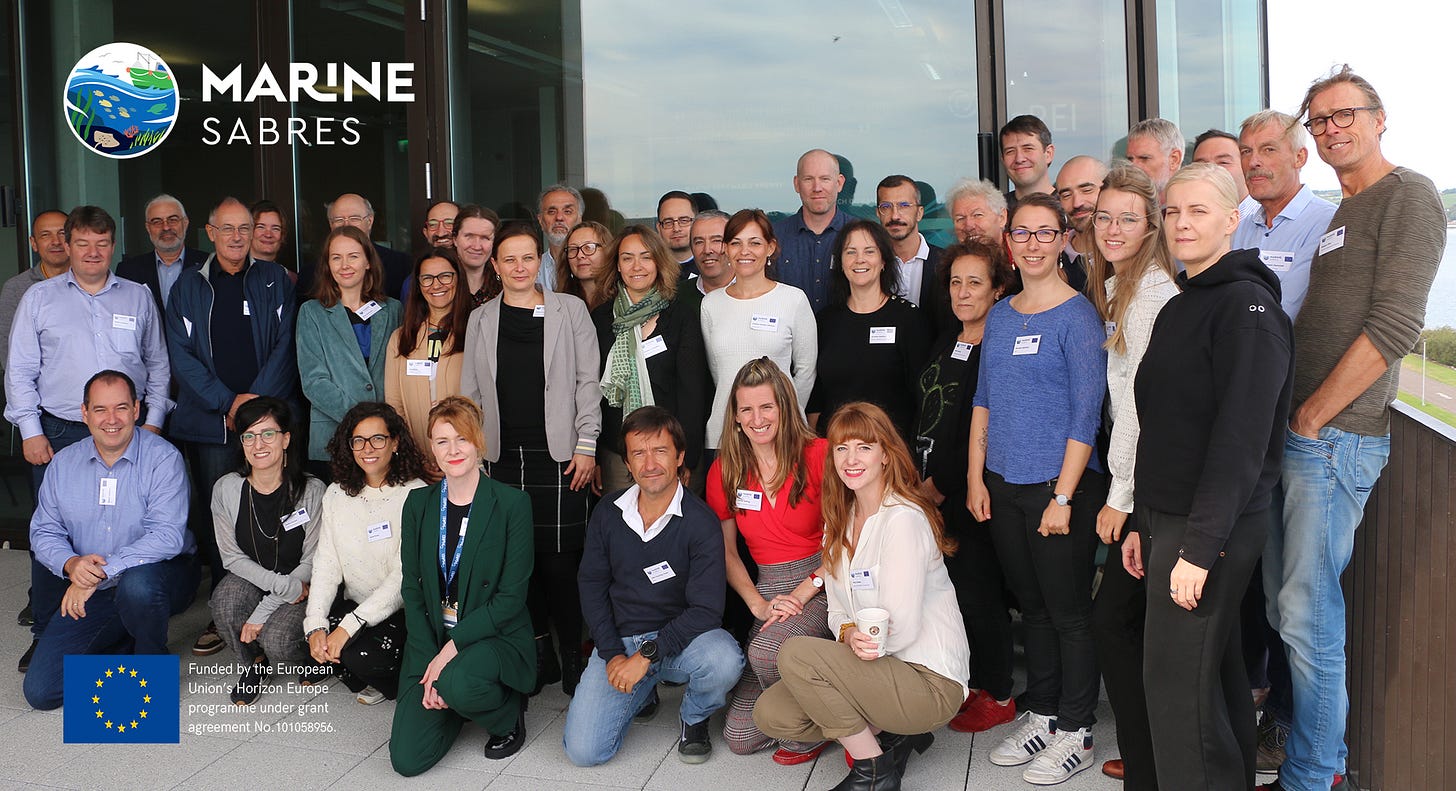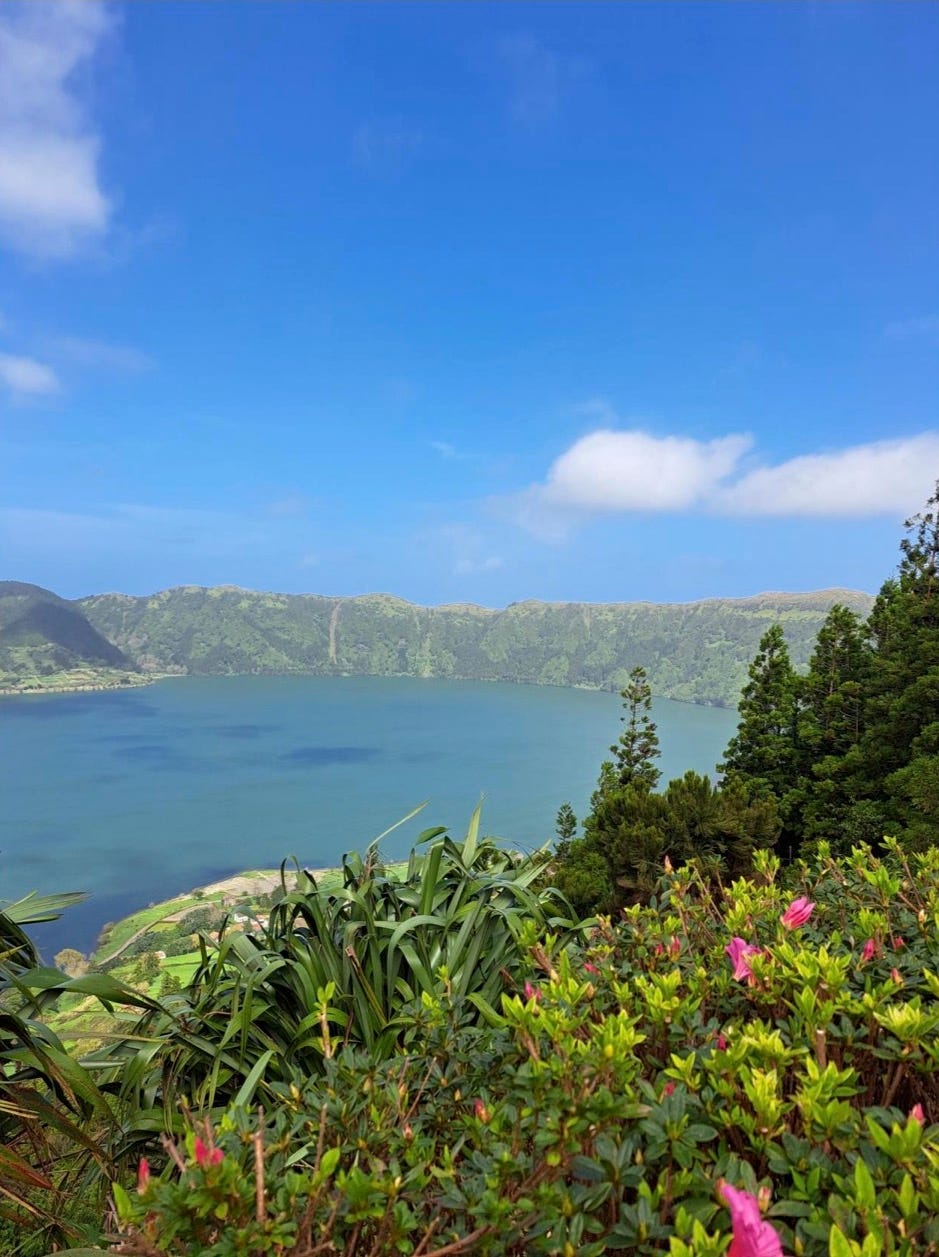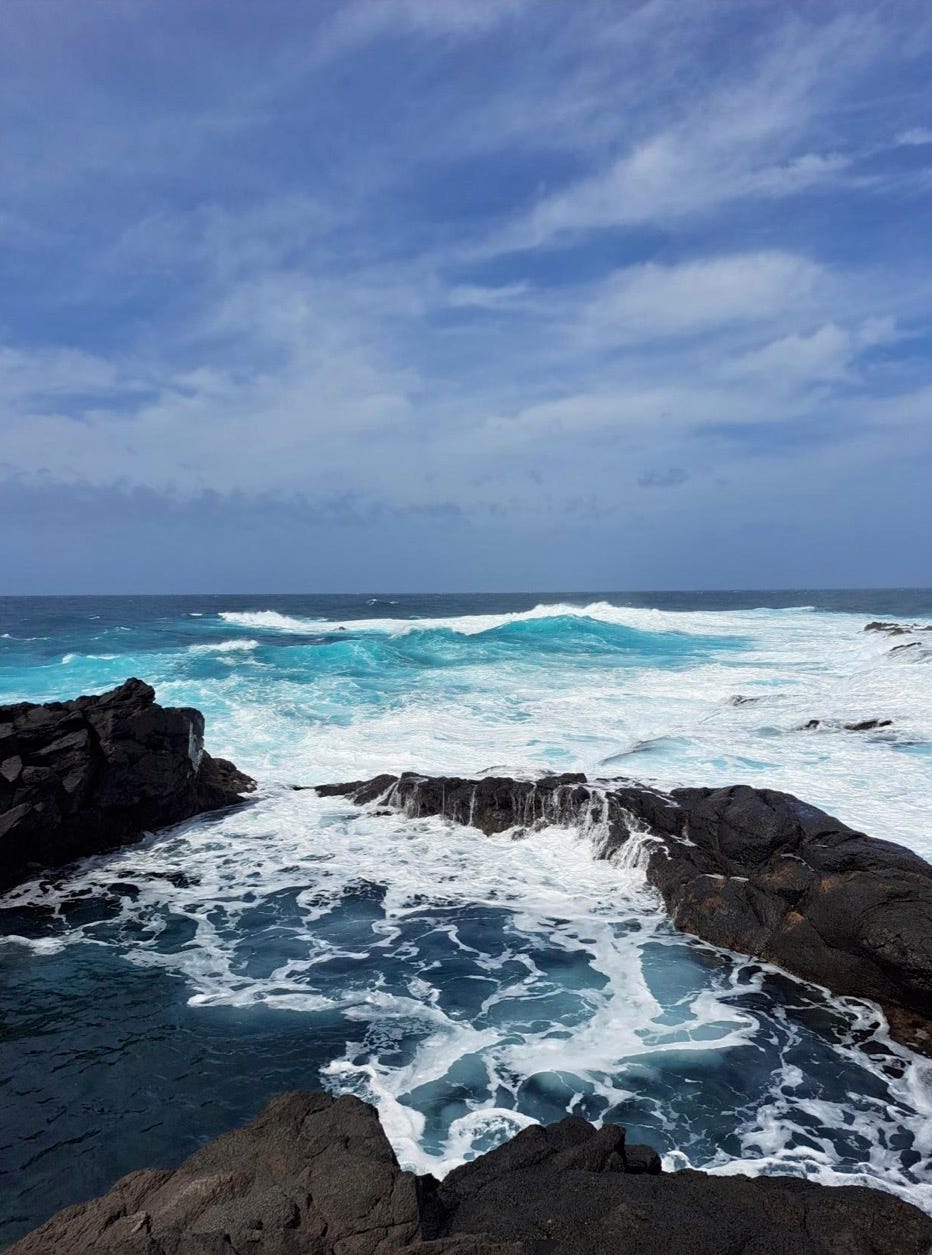Welcome to our first annual newsletter! Marine SABRES (Marine Systems Approaches for Biodiversity Resilience and Ecosystem Sustainability) has just completed the first year of our four-year project, which we kicked off in Cork, Ireland last year. Since then, we’ve made significant progress towards our goal of building a socio-ecological system framework that will make it easier to implement ecosystem-based management of the ocean.
Below you’ll find articles from our partners institutions across Europe that describe the various threads of Marine SABRES research. We hope you enjoy them!
— The Marine SABRES Consortium
www.marinesabres.eu
Contents
Scroll to read the articles below, or view each article individually on our website via the following links:
Co-Creating Better Marine Management: Stakeholder Engagement in Marine SABRES
HuFoSS, NetherlandsMaking Progress on Protecting the Marine Environment in Guguy, Gran Canaria
ECOAQUA, ULPGC, Gran Canaria, Spain
Using Systems Thinking to Design a Simple Socio-Ecological System
IECS, Ltd., UKRestoring Seagrass Meadows in the Tuscan Archipelago
University of Pisa, ItalyStakeholder Engagement in the Azores
University of the Azores, PortugalInter-project Collaborations within Marine SABRES
MaREI, University College Cork, IrelandDeveloping Targeted Solutions for Biodiversity and Climate Sustainability and Resilience
Co-Creating Better Marine Management: Stakeholder Engagement in Marine SABRES
HuFoSS, Netherlands
One of the innovative aspects of the Marine SABRES project is the central role given to stakeholders. Unlike typical 'top-down approaches,' where scientists and policy-makers draft plans and strategies without actively considering the voices of local actors, Marine SABRES is explicitly designed with the input from the community at its core. This approach is key, since it increases the likelihood that the project's outputs – decision making tools and instruments – are embraced and used by the target audience, namely local managers, decision-makers, and even the community at large.
Given this central role of stakeholders in the project as a whole, our work package (Work Package 2 or ‘WP2’), has a particularly important role to play as well. Since we are tasked with engaging local stakeholders to become a part of this 4-year research endeavor, and to include them in the ‘co-production’ of the projects’ tools and instruments, we are in a unique bridging position between the local stakeholder community and the other research partners in the project. Therefore, it is important that we, as WP2, effectively communicate this valuable "insider information" to the other project partners, guiding them in the development of the tools and instruments over the course of the project.
Over the last year we made some considerable steps in this regard, over roughly three different phases.
1. Preparatory Phase (September 2022 – February 2023)
From September 2022 to February 2023, our team dedicated its efforts to preparing for the upcoming stakeholder consultation visits in the various research areas, also known as Demonstration Areas. This primarily involved designing a stakeholder survey to assess stakeholders’ perceptions, as well as devising an interview protocol that would meet the requirements of our specific research purposes. This was a collaborative effort, because of the input from all partner institutes within Marine SABRES we successfully completed all the essential materials for the interviews and survey well ahead of our research visits.
2. Executive Phase (February 2023 – July 2023)
After a successful preparation, the primary focus in the subsequent phase revolved around actually visiting the various Demonstration Areas. These visits turned out to be immensely successful, and we extend our gratitude to all the partner institutes at each location for their diligent efforts in finding and motivating local stakeholders, providing translation assistance, guiding us during our visits, and, above all, for the experiences shared. Sadly, due to local circumstances, we were unable to conduct visits to the Arctic Demonstration Area. Nonetheless, we remain optimistic and hope that in some way or another, we can make this happen somewhere in the future.
3. Interviews and Surveys
Throughout our visits, we engaged in conversations with diverse stakeholders, each bringing their own unique perspective. From the local hotel-owner and recreational fisherwoman, to industrial port authorities and national policy-makers, all research participants were invited to join in and express their views and opinions. Upon arrival, our team offered the stakeholders a presentation that provided additional context, outlining the purpose and significance of the Marine SABRES project in greater detail, and explaining the value of their opinions and perspectives to the project.
Typically, we conducted individual interviews with each stakeholder, followed by a survey. In certain research areas we opted for group-surveys in which various stakeholders gathered together to participate in the survey simultaneously. We all got together, enjoyed coffee, tea, and snacks while doing the survey. It took some planning, but the results were consistently rewarding!
The interviews themselves were a mix between quantitative and qualitative research techniques. Our methodology uses a method known as ‘fuzzy cognitive modelling’, allowing us to ‘map’ stakeholders’ perspectives regarding the relationships between ‘nature’, ‘economy’, and ‘society’ within their (marine coastal) environment, the degree of ‘balance’ or ‘disbalance’ between these domains, and, importantly, so-called ‘pressures’ that might affect or disrupt this balance. During the sessions, stakeholders’ accounts were distilled into keywords and placed on a magnetic sheet, after which the interviewees used markers and colors to establish connections between these keywords. The outcome was a collection of highly distinctive mind maps, which we later processed digitally.
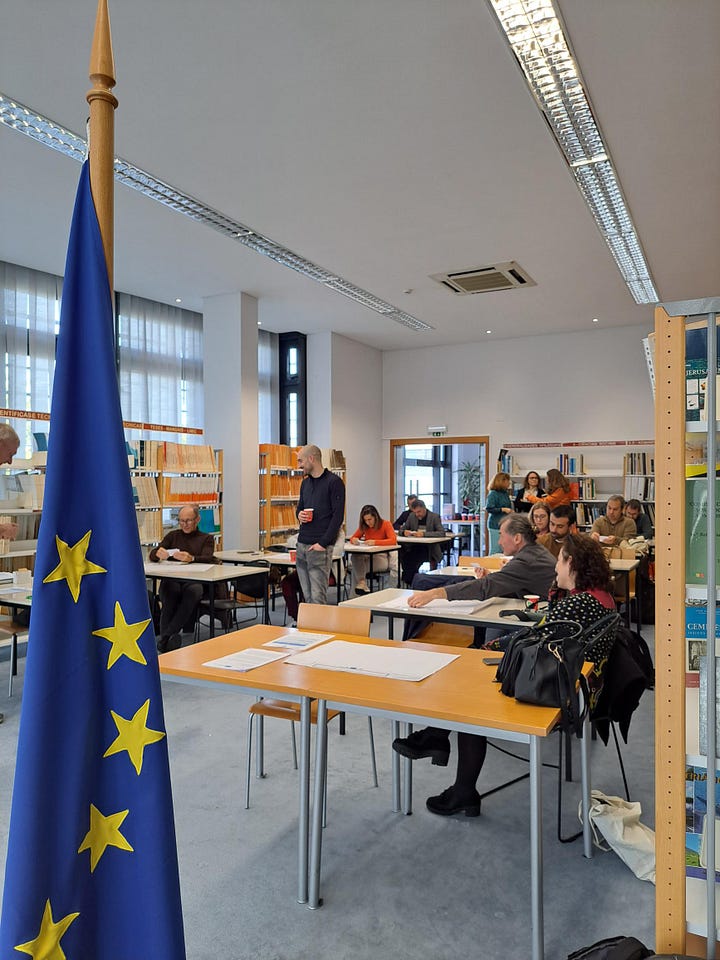
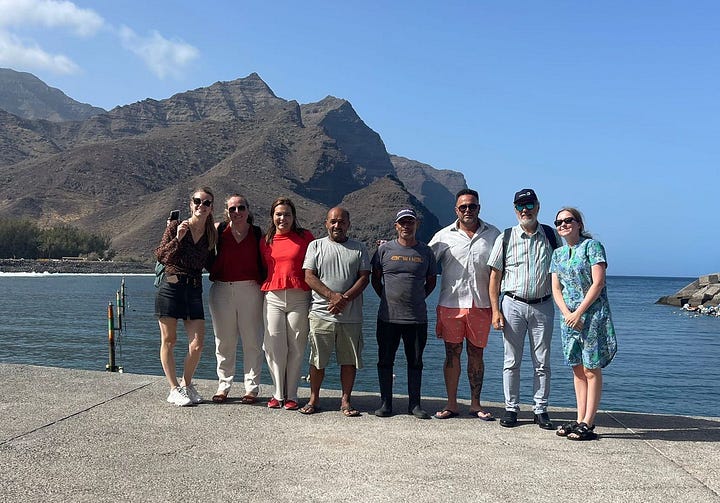
Making Progress on Protecting the Marine Environment in Guguy, Gran Canaria
ECOAQUA, ULPGC, Gran Canaria, Spain


The Biodiversity and Conservation Group of the Research Institute ECOAQUA (ULPGC) coordinated a workshop to analyse key elements linked with the conservation of marine biodiversity and to promote the blue economy of coastal areas under an ecosystem approach. The workshop was focused on the western coasts of Gran Canaria Island, including the protection of the marine environment in La Aldea de San Nicolas municipality, especially in the Guguy area.
The Natura 2000 protected area “Sebadales de Güigui” covers an area of 7,200 hectares and bathes the municipality's coastline. The area aspires to be part of the first National Park of Gran Canaria Island, which is one of the reasons it has been selected as key element of our Macaronesia Demonstration Area.
The area has an undoubted natural wealth and incredible seascape and landscape, with 39 species of endemic flora unique to Gran Canaria (36.8% of those registered) and 78 species exclusive to the Canary Islands (11.8% of the existing total). It would also be the third Spanish National Park with terrestrial and marine surface, after those of the Atlantic Islands (Galicia) and the Cabrera archipelago (Baleares), by integrating its incredible underwater wealth among its values, including its seagrass beds and its underwater black coral forests.
Using Systems Thinking to Design a Simple Socio-ecological System
IECS, Ltd., UK
In a marine context, the Social-Ecological System (SES) includes all the living things in the sea (such as fish, plants, and microscopic life), the physical environment of the ocean (such as the water, the seafloor, and the coastlines), and all the ways that humans use, benefit from, and affect the ocean. This includes activities such as fishing, shipping, tourism, and energy production, as well as less visible impacts such asclimate change and pollution.
Within the Marine SABRES project, we are creating a Simple SES. This takes a big-picture approach to marine management by looking at the multiple elements of a marine system and how these elements interact with each other and external influences. The discipline of systems thinking provides us with the tools to look at how and what we manage in a critical way. Under a systems approach, we recognise thatchanges in one part of this system can have ripple effects throughout the rest of the system. For example, overfishing can deplete fish stocks, which in turn affects seabirds that feed on those fish, and also impacts human communities that depend on fishing for their livelihoods. The aim of this approach is to ensure that the SES is able to provide services to society, such as nice sandy beaches to visit and healthy ecosystems which supply the fish we eat.
Restoring Seagrass Meadows in the Tuscan Archipelago
University of Pisa, Italy

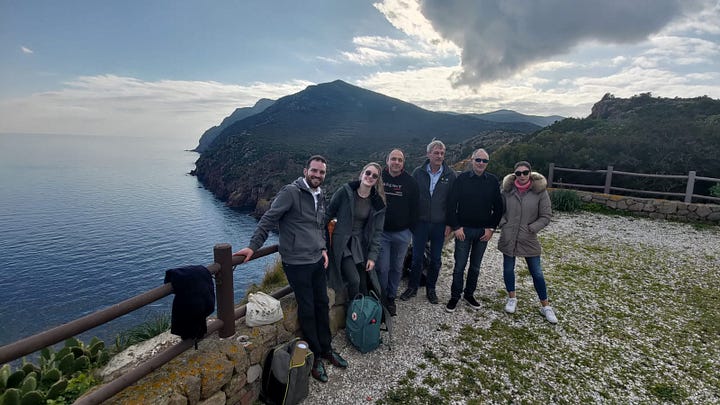
Seagrass meadows, such as Posidonia oceanica, play a vital role in the Mediterranean Sea. They are highly productive and widespread coastal ecosystems that provide essential ecosystem services. These meadows serve as important habitat and nursery areas for commercial species and contribute to regulating services like coastal protection and "blue" carbon storage. Seagrasses are susceptible to degraded environmental conditions, which can lead to their decline and the subsequent dominance of algal turfs. This shift has cascading impacts on productivity, deoxygenation, and the overall ecosystem services they provide.
Marine SABRES partners at the University of Pisa (UNIPI) are undertaking restoration activities the Tuscan Archipelago to address the threats facing Posidonia meadows due to increasing anthropogenic pressures, particularly tourism. With over two million visitors each year, tourism is one of the most significant economic activities in the region, but it also has measurable ecological impacts. In particular anchoring from diving boats, elevated nutrient discharge, and pollution are major threats.
Stakeholder Engagement in the Azores
University of the Azores, Portugal
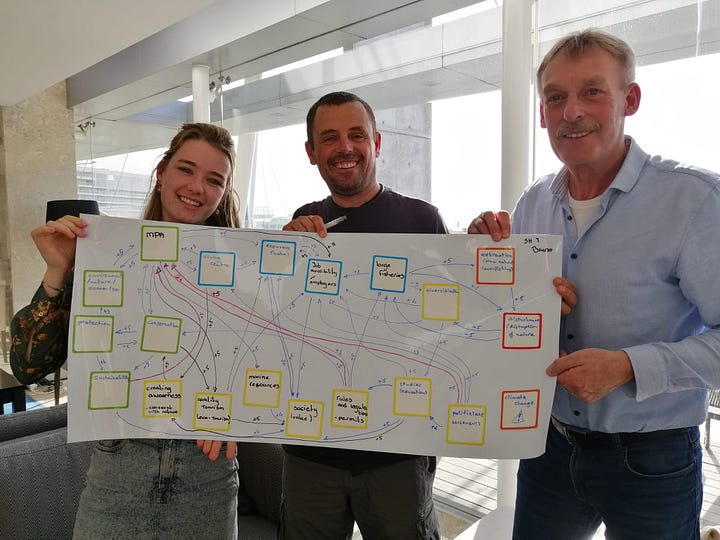
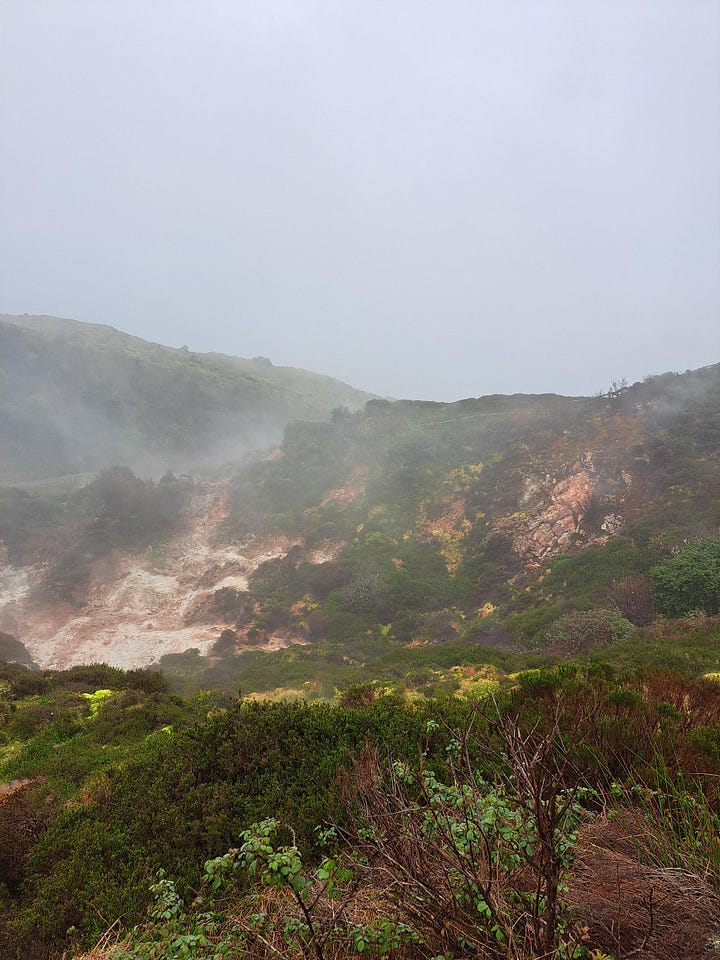
Marine SABRES team members from the University of the Azores (Ana C. Costa, Andrea Z. Botelho, Nuno V. Álvaro, Manuela Parente, Maria A. Ventura, Daniela Casimiro and José Azevedo) were involved in the stakeholder’s engagement in Azores archipelago, from 27 - 31 March 2023. This joint work with the HUFOSS team was made to collect the opinion of the multisectoral stakeholders for the Macaronesia research site in the São Miguel and Terceira islands . The team employed an informal, active, and constructive public participation process, with the aim of sharing interests and concerns related to Nature, Economy, and Society. The Azores archipelago wetlands and marine corridor were represented by joint a stakeholder group that are headquartered in different islands. Nineteen stakeholders from the private sector, administration, NGOs, science centres and researchers were invited and participated in the survey (12 in São Miguel and 7 in Terceira Island). Environmental NGOs and fishing organisations, maritime tourist operators and governmental bodies were all represented in the interviews and workshops.
Inter-Project Collaborations
MaREI, University College Cork, Ireland
Since the beginning of the project, Marine SABRES representatives have been active carrying out one of its key coordination tasks - the creation of a collaboration plan for the enhancement of collaborative activities with other research projects that examine similar topics or use similar approaches. This work aims at maximizing knowledge and experience sharing and optimising the use of resources when projects work on same locations and/or with similar data, stakeholders as well as wider audiences.
In this article, we will briefly describe how we’ve been combining or planning to combine efforts with other amazing projects that work on socio-ecological systems, marine biodiversity, ocean governance, marine spatial planning, nature conservation, nature-based solutions and more.
Developing Targeted Solutions for Biodiversity and Climate Sustainability and Resilience
Work Package (WP) 5 aims at developing targeted solutions. For this purpose, WP5 is:
Developing and testing socio-economic scenarios
Assessing the economic costs and benefits that achieving these scenarios will imply
Quantifying the incentives and behavioural changes needed to achieve the transformation thesescenarios require
Developing innovative governance approaches to achieve climate, biodiversity and sustainabilitytargets.
During the first year of Marine SABRES, WP5 researchers have primarily focuse on developing socio-economic scenarios (Task #1 above), while conducting preparatory work on the remaining three tasks. This year, we developed scenarios based on biodiversity conservation and international climate targets, which have been applied to the research sites (also called the 'demonstration areas') of the project. We have incorporated insights from stakeholders, narratives and spatial datasets, and different scenarios are proposed as a set of possible alternatives in support of decision-making.
A report on this task is in preparation, and will be titled “Scenarios to reach biodiversity, sustainability and climate targets”. This Report adapts the RCP and SCP climate scenarios to our three research sites. The final goal is to develop a vision for pathways towards transformation vis-à-vis current and future challenges across several socio-economic sectors.

Learn more about the Marine SABRES project at www.marinesabres.eu.





